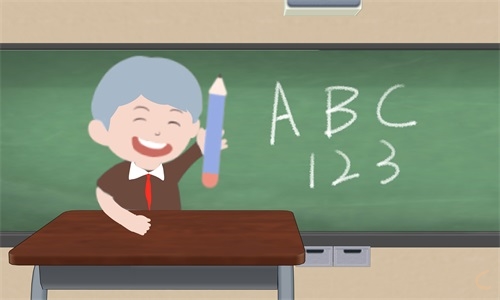6年级英语知识点整理
到初中后,英语将晋升为主科。作为毕业班的六年级,也应该适当地为初中的学习打好基础。以下是小编为大家带来的6年级英语知识点整理,欢迎参阅呀!

6年级英语知识点整理1
一、be的用法口诀
我用am,你用are,is连着他,她,它。
单数名词用is,复数名词全用are。
变疑问,往前提,句末问号莫丢弃。
变否定,更容易,be后not莫忘记。
疑问否定任你变,句首大写莫迟疑。
二、时间名词前所用介词的速记歌
年月周前要用in,日子前面却不行。
遇到几号要用on,上午下午又是in。
要说某日上下午,用on换in才能行。
午夜黄昏须用at,黎明用它也不错。
at也用在明分前,说“差”可要用上to。
说“过”只可使用past,多说多练牢牢记。
莫让岁月空蹉跎。
三、记住f(e)结尾的名词复数
妻子持刀去宰狼,小偷吓得发了慌。
躲在架后保己命,半片树叶遮目光。
四、巧记48个国际音标
单元音共十二,四二六前中后。
双元音也好背,合口集中八个整。
辅音共计二十八,八对一清又七浊,四个连对也包括。
有气无声清辅音,有声无气浊辅音,发音特点应掌握。
五、非谓语动词的一些特殊用法后只接不定式作宾语的一些常用特殊谓语动词
动词后,不定式,want,hope和wish。
agree,decide,mean,manage,promise。
expect,pretend,且说两位算在此。
要记牢,要记住,掌握它们靠自己。
六、后接动词不定式做宾语补足语省略不定式符号“to”的一些常用特殊动词
一些动词要掌握,have,let和make。
此三动词是使役,“注意”“观察”“听到”see。
还有feel和watch,使用它们要仔细。
后接“宾补”略去“to”,此点千万要牢记。
除此之外,还可以掌握“八字言”。
一感feel,二听hear,listento。
三让have,let,make,四看see,lookat,observe,watch。
七、后只接动名词做宾语的一些常用特殊动词
特殊动词接“动名”,使用它们要记清。
“放弃”“享受”可“后悔”。
“坚持”“练习”必“完成”。
“延期”“避免”非“介意”。
掌握它们今必行。
6年级英语知识点整理2
1.So + be/助动词/情牵动词/主语。
前面陈述的肯定情况也适于另一人(物)时,常用到这种倒装结构,表示“另一人(物)也如此”。前面陈述的否定情况也适于另一人(物)时,常用“Neither/ Nor + be/助动词/情态动词+主语”这种倒装结构。
注意:“So+主语+be/助动词/情态动词”。这一句型常用于表示赞同,进一步肯定对方的看法,表示“的确如此”,“是呀”。
2.Turn right/left at the first/second/…crossing.
这一指路的句型意为“在第一/二/……个十字路口向右/左拐”,相当于Take the first /second/…turning on theright/left.
3.It takes sb.some time to do sth.
此句型表示“干某事花了某人一段时间”。其中的it是形式主语,后面的动词不定式(短语)才是真正的主语。
4.…think/find + it + adj. + to do sth.
此句型中的it是形式宾语,不可用其它代词替代,形容词作宾语的补足语,后面的动词不定式(短语)才是真正的宾语。
5.What's wrong with…?
此句型相当于What's the matter/ trouble with…?后跟某物作宾语时,意为“某物出什么毛病了?”后跟某人作宾语时,意为“某人怎么了”。
6.too…to…
在so…that…复合句中,that后的句子是否定句时,常与简单句too…to…(太……而不能……)进行句型转换。
在so…that…复合句中,that后的句子是肯定句时,常与简单句…enough to…进行句型转换。
7.Sorry to hear that.
全句应为I'm sorry to hear that. 意为“听到此事我很难过(遗憾)”。常用于对别人的不幸表示同情、遗憾之意。
8.There be 结构
a.这是英语中常见的一种结构,表示“某地有某物”其含义为“存在有”。
eg.There are twenty girls in our class.
have也解释为“有”但是与there be有区别,它的含义是“所有,属有”,其主语为某人。
eg.I have a nice watch.
b.There be 结构中的be动词要和后面所跟名词保持一致。
c.There is a river near our school.
否:There is not a river near our school.
问:Is there a river near our school.
回答:Yes,there is. No,there isn't.
6年级英语知识点整理3
1. This is my mouth. This is my hair. This is my nose.
These are my eyes .These are my feet. These are my hands.
2. I' have a friend ,he has short hair and small eyes. He likes sports and music.
3. What's your name? I'm ZhangPeng.\My name is ZhangPeng.
4. What time is it? It's six o'clock. \ It's time for dinner.
5. What's this? It's a cup. (brush, duck, bus )
6. I go to school by bike.\by bus\on foot.
7. (1) What are you doing?
I am walking.
(2)What's she doing?
She is singing.
(3) What's he doing?
He is dancing.
8. What do you like? I like ……
9. Where are you from ? I'm from America.
10. How are you? I'm fine, thank you.
11. How old are you? I'm twelve.
10. How do you go to school? I go to school by bus.
11. How many ducks can you see? I can see two.
12. Do you like swimming? Yes, I do. / No, I don't.
13. Can you sweep the floor? Yes, I can.
Can you ride a bike? No, I can't.
Can you cook the mile? Yes, I can.
14. What colour do you like? I like orange.
Do you like black? No, I don't like black. I like purple.
15.Is this a canteen? Yes it is \No it isn't.
16. Welcome to BeiJing!
17. What would you like? I'd like some beef and rice.
6年级英语知识点整理4
表示将来将要发生的动作, 经常和tomorrow, next year, the day after tomorrow, the year after the next, in five hours' time, etc. 表示将来的词联用。
结构:主语+助动词will+动词原形
I will go to America tomorrow.
The pilot will fly to Japan the month after the next.
Jack will move into his new house tomorrow morning.
★变疑问句将助动词移到句首
Will you go to America tomorrow?
Will the pilot fly to Japan the month after the next?
Will Jack move into his new house tomorrow morning?
★变否定句在助动词后面加not
I will not go to America tomorrow.
The pilot will not fly to Japan the month after the next.
Jack will not move into his new house tomorrow morning.
★肯定回答及否定回答
Yes, I will. / No, I will not.
Yes, he/she will. / No, he/she will not.
Yes, he will. / No, he will not.
★特殊疑问句
What will you do?
6年级英语知识点整理5
话题:身体 时态:比较级在一般现在时中的运用
句型:
1. How 引导的特殊疑问句,来谈论对方的身体情况:--- How + (高、矮、胖、瘦等与身体有关的)形容词 + are you? --- I'm + 与身体有关的具体数值。例:
A: How tall are you? B: I'm 164 cm tall.
2. 比较级,用来对自己和他人的身体特征进行比较:--- You are + 形容词的比较级 + than me. --- I'm + 形容词的比较级 + than you. 例:
I'm thinner than you. My hands are bigger than yours.
话题:身体 时态:一般现在时
句型:
1. What 引导的特殊疑问句,谈论身体上的病痛:--- What's the matter? --- My +身体器官 + is / are + sore. / My + 身体器官 + hurt / hurts. / I have a + 有关病痛的词组。例:
A: What's the matter, Amy? B: I have a cold. My nose hurts.
2. How 引导的特殊疑问句,谈论人们情绪上的感受:--- How are you? You look +与情绪有关的形容词。--- I'm + 形容词。例:
A: How are you, Liu Yun? You look so happy. B: Yes. I'm excited.
话题:日常活动 时态:一般过去时
句型:
What 引导的特殊疑问句,就过去已经发生的行为动作进行提问:
--- What did you do + 时间?--- I + 动作(did). 例:
A: What did you do last weekend?
B: I Played football.
Did 引导的一般疑问句,就过去是否发生了某行为动作进行问答:
--- Did you + 动词原形?--- Yes, I did. No, I didn't. 例:
A: Did you read books? B: Yes, I did.
话题:节日 时态:一般过去时
句型:
综合运用Where, When, What, How等词,引导特殊疑问句,就过去已经发生的行为动作进行提问:基本句型同上。例:
A: Where did you go on your holiday? B: I went to Xinjiang.
一般过去时(-ed形式)
构 成 法 例 词
A.一般动词在词尾加-ed cook--cooked
play -- played
B.以e结尾的动词在词尾加-d live -- lived
C. 以辅音字母加y结尾的动词,先y变为i,再加-ed fly -- flied
study -- studied
D. 末尾只有一个辅音字母的重读闭音节词,双写该辅音字母加-ed stop -- stopped
plan -- planned
E.不规则变化 swim - swam
have -- had
F. be 动词变化 am - was
is - was
are -- were
形容词比较级(er形式)
构 成 法 例 词
A.一般直接加-er long -- longer
B.如果以-e结尾,直接加-r nice -- nicer
C. 闭音节词如末尾只有一个辅音字母须双写这个字母,再加-er big -- bigger
D. 以辅音字母加-y结尾的词,变y为i,再加-er. heavy -- heavier
小学阶段没有强调比较级的不规则变化
6年级英语知识点
上一篇:自考英语二10月真题及答案解析
下一篇:返回列表






